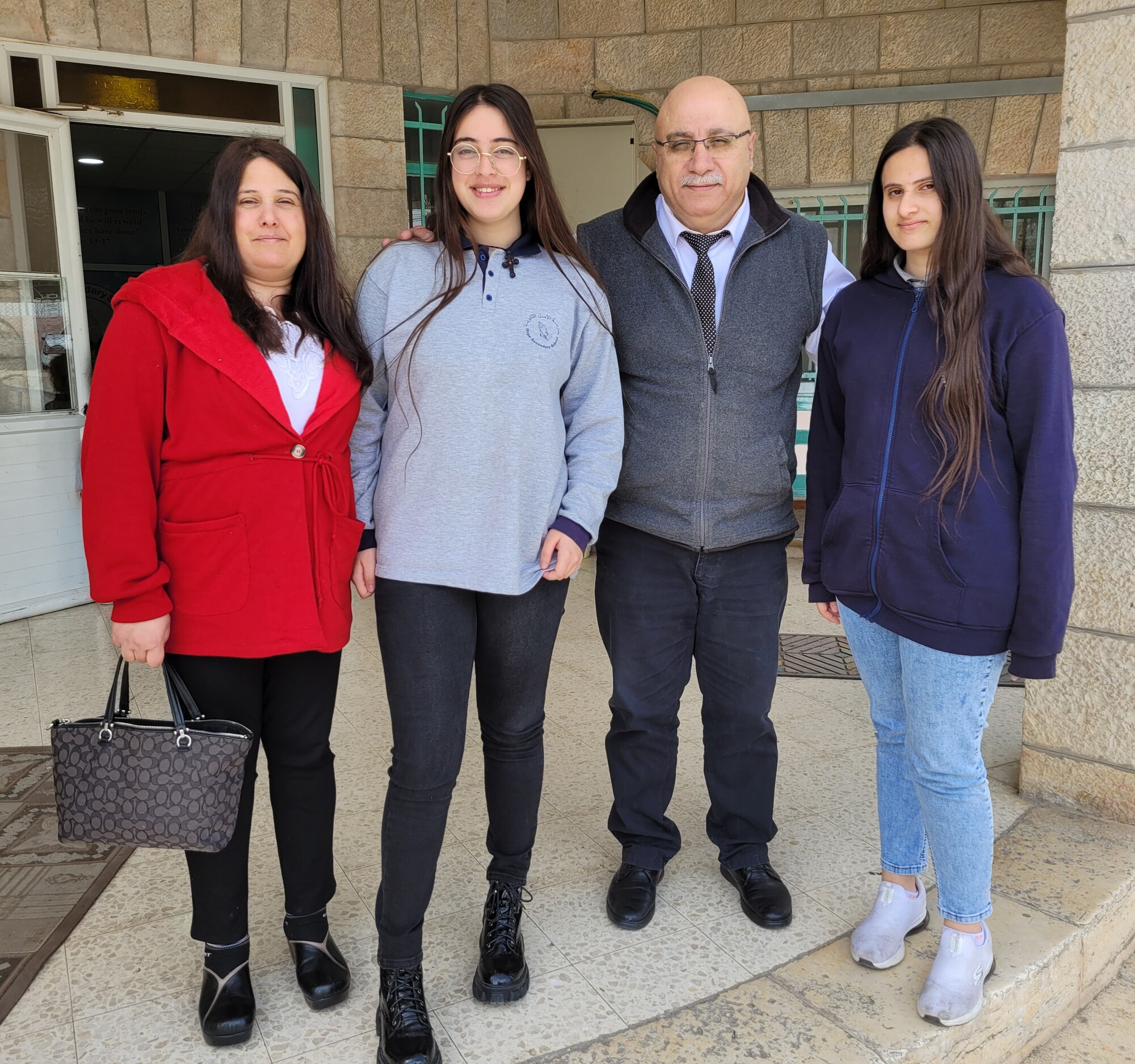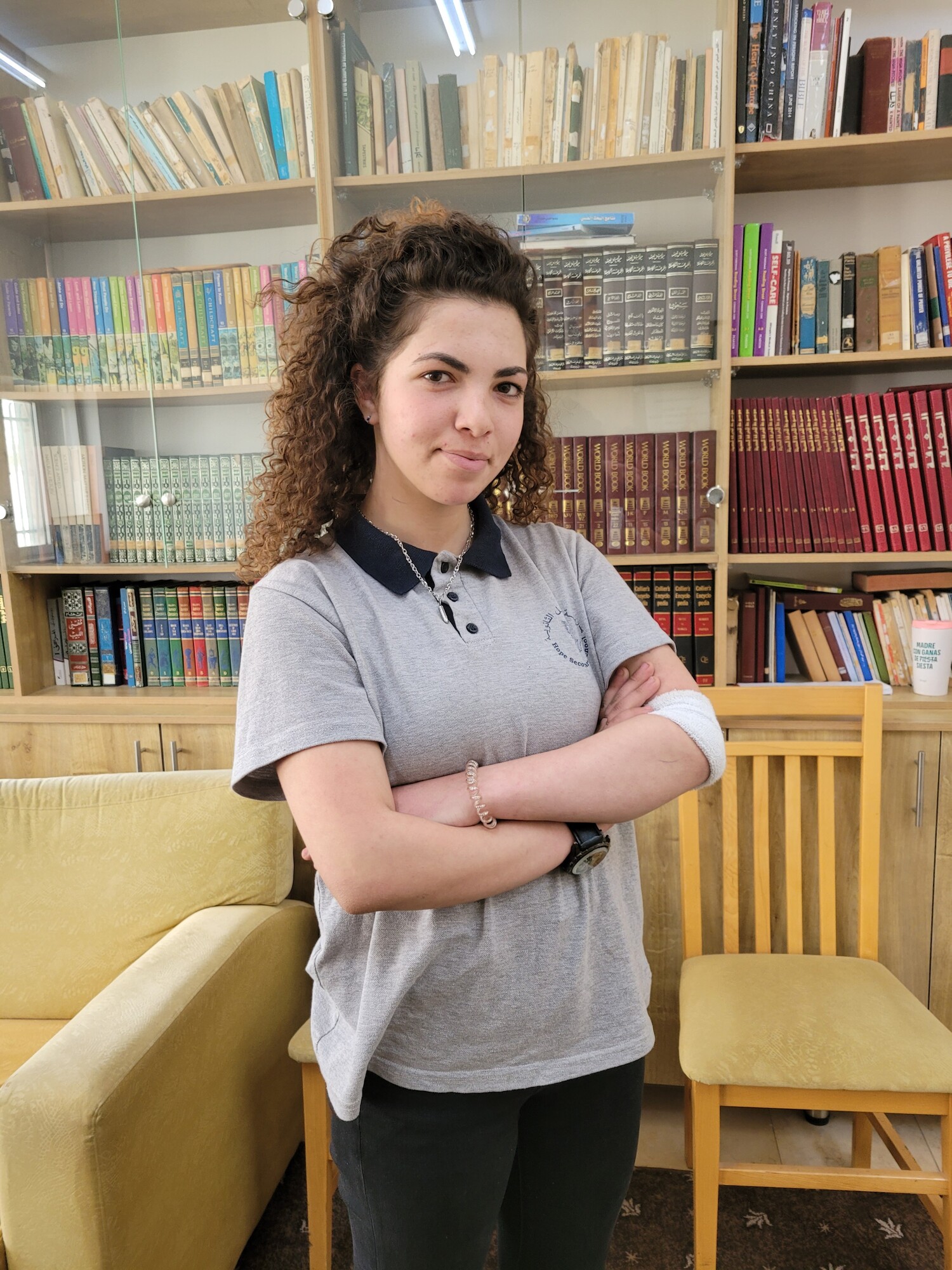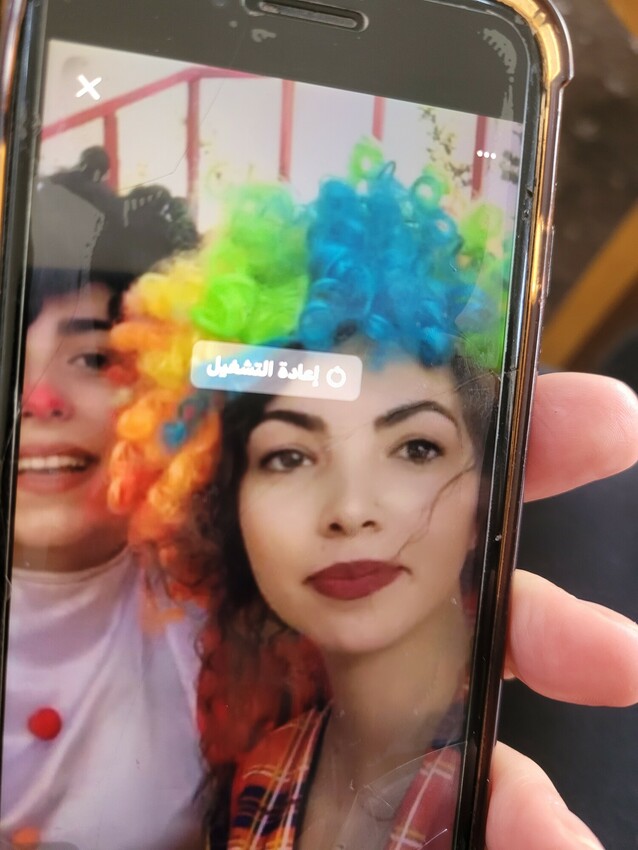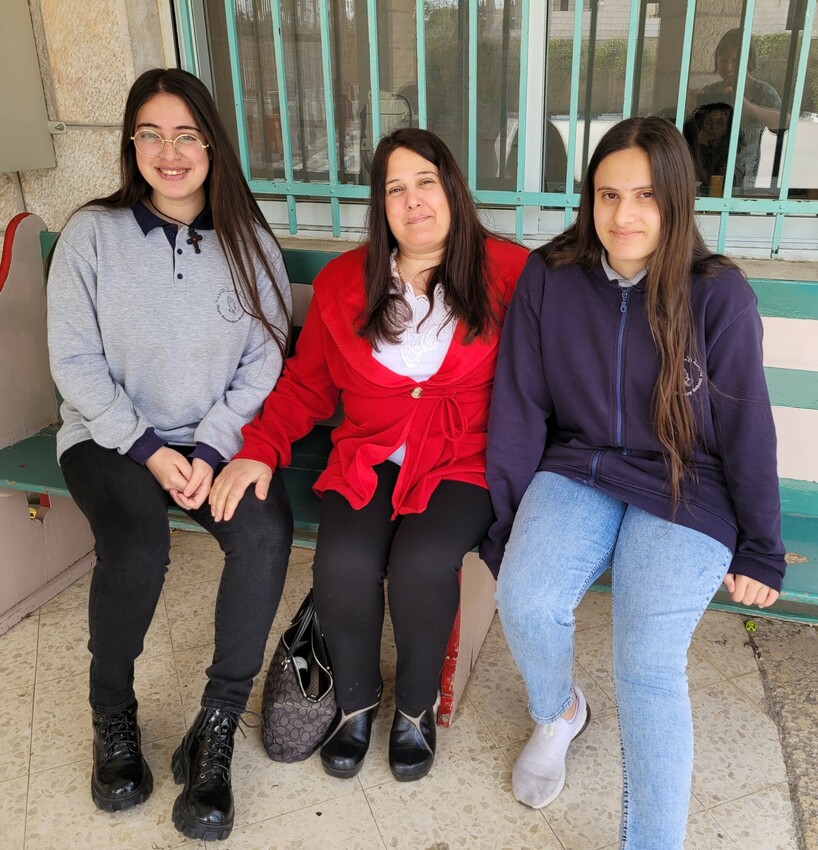Second chances
MCC scholarships give Palestinian students an opportunity to succeed

Samiya’s* parents recognized their 15-year-old daughter’s academic and leadership talents, but they were frustrated that she wasn’t getting the education she needed at her public school in the West Bank, Palestine. Between the effects of COVID-19 and a public service strike on her education, her parents felt her giftedness was being wasted.
They wanted to enroll Samiya in Hope School, a K-12 institution in Bethlehem District that was established through Mennonite Central Committee (MCC) in 1962, but they couldn’t afford the tuition. Her father is a seasonal worker on a chicken farm, where earning even a basic income is difficult. As a Palestinian, his prospects of full-time work are hampered by increasing Israeli occupation of surrounding farmland and roads.

But Hope School, now a Christian school run by Arab Charitable Society, is known as a school of second chances. It takes in many students whose educational prospects have been thwarted because of poverty, family trauma and other barriers. Many, if not most, Hope students have left other schools for lack of funds, poor grades or behavioral issues.
Through an MCC-supported Hands of Hope scholarship fund, Samiya became one of 60 students whose tuition is supplemented through scholarships. She has flourished at Hope School, where she used her leadership skills to organize a basketball tournament. At community events, she dresses up as a clown to entertain children. “I just want to see every child in the world smile,” she says.

Seth Malone, an MCC representative in Jerusalem, says that MCC supports Hope School because families like Samiya’s are deeply affected by the ongoing Israeli military occupation.
“The severe restrictions and the constant threat of violence because of the occupation impact all aspects of Palestinian life, particularly education,” Malone says. “In this case, without adequate funding, schools in Palestine are stretched to the breaking point and lack the resources needed to help children with special behavioral issues or those experiencing complex trauma.”

Mariam*, 19, and her two sisters are scholarship recipients who are dealing with complex trauma.They had been enrolled in a Catholic school near their home, but they were not allowed to continue their education there because they couldn’t do their homework in the evenings and their parents fell behind in paying tuition.
Doing homework was a problem because their brother has a combination of mental illnesses that made him violent and disruptive—to the point that treatment programs expelled him, forcing him to move back home. Despite medication, his violent episodes haven’t diminished.
“He just doesn’t leave us alone,” Mariam says. “He gets violent and breaks things for no reason. Even if we lock ourselves in our room, he makes noise by turning up the TV to maximum volume and doesn’t let us do anything.”
At school, however, Mariam says she can focus better than at home and at her previous school. “Here there are only eight others in my class instead of 30. The teachers have more time for me, and I’m not so distracted.” She also has made some good friends.
“Just as God gives all of us a second chance, Hope School is providing these students another opportunity to succeed.”
Seth Malone
MCC representative in Palestine and Jerusalem
Finances are scarce because Mariam’s father is focused on his son’s needs. Mariam’s mother struggles to cover her daughters’ needs with her salary as a cashier in a pharmacy.
Three years ago, conflict with Mariam’s uncle caused her family to leave the home they were sharing with him and to rent a house several miles away. That meant extra financial stress on the family, which took away their ability to pay tuition at the Catholic school.
Two years ago, in desperation, Mariam’s mother inquired at Hope School about the Hands of Hope scholarships, which cover up to a third of the tuition costs for students who demonstrate both family need and the applicants’ potential to succeed.
All three daughters were accepted into Hope School, where both Christians and Muslims study together. The oldest graduated last year and is attending a university (which adds to the financial challenges), while Mariam graduated in spring of 2023 and her sister is a senior this year.
Mariam’s family has found some relief from their challenges at home. Her oldest sister lives with a friend’s family—generally frowned upon in Palestinian culture because young women are expected to remain at home until marriage. Mariam has moved in with her paternal grandmother—also not ideal because of the conflict in that side of the family. And the youngest remains at home.
“By partnering with Hope School and providing these much-needed scholarships, MCC is helping to break down the barriers that keep children in Palestine from learning,” says Malone. “Just as God gives all of us a second chance, Hope School is providing these students another opportunity to succeed.”
*The students' real names have been changed for their protection
Give where needed most
Every donation makes a difference.

